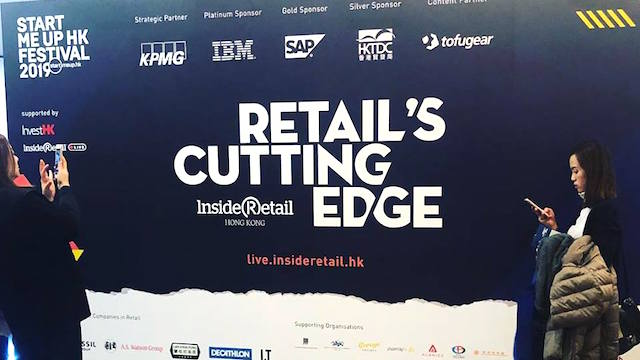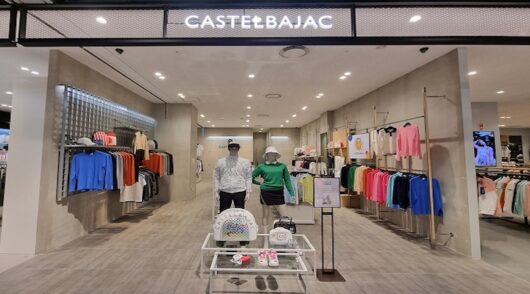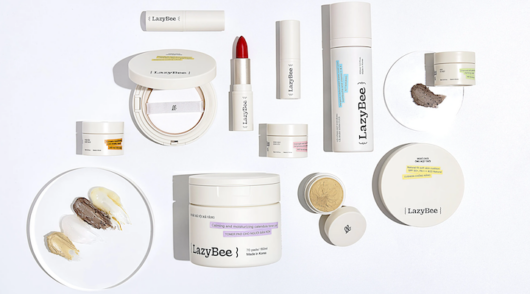Never has embracing technology been more critical and more relevant for retailers and at yesterday’s Retail’s Cutting Edge event in Hong Kong, there were some wake-up calls for everyone.
The event, organised by Inside Retail as part of InvestHK’s StartmeupHK Festival, opened with a capacity audience at the HKCEC. Speakers came from as far afield as New York, Stockholm, Singapore and Thailand.
Here are seven takeouts selected from many throughout the day:
Fung Retailing launches new concept with Alibaba
Fung Retailing MD Dustin Jones unveiled a new venture at Retail’s Cutting Edge: a major collaboration between Fung Group and Alibaba to help foreign brands launch in Mainland China’s fast-growing New Retail environment. The new company will be called ARC (which stands for Asia Retail Catalyst) It will pool the vast resources of Alibaba’s 600 million customers and Fung Group’s 112 years of retail and supply chain experience across China and beyond to create viable businesses for brands entering the region. The first of these will launch in June.
The fashion industry needs to reduce waste
“Recycling fashion requires a behaviour change. Consumers need to realise that old clothes at the end of their life are not a waste, but a resource,” H&M Foundation innovation lead Erik Bang told delegates. With the fashion sector one of the most wasteful industries on the planet, The H&M Foundation is investing in startups finding solutions to reduce waste, both at the point of manufacture and supply to the reuse of apparel once it wears out or the owner loses interest in it. One of these companies is Hong Kong’s Unspun, which has opened at The Mills Fabrica.
The sharing economy is about to boom
“By 2025, the sharing economy is predicted to be worth US$335 billion and fashion will be one of the top five contributors to that figure.” Fioni Fong marketing director at Yeechoo shared the success of the Hong Kong fashion-sharing company, which is now working with fashion labels to add garments to its stock. Users pay an HK$800 fee for six rentals, with new looks added every month. That’s sharply less than the $1100 average monthly spend of the 50 per cent of Hong Kong women aged 18 to 40 who say they buy clothes at least once every four weeks.
The counterfeit conundrum: consumers want action
Retailers who consider the counterfeiting of their goods as “flattery” (based on the old expression imitation is the highest form of flattery), consumers think differently. Tofugear managing partner Carson McKelvey quoted a survey of consumers which found one in three had inadvertently bought a counterfeit item and one in five such goods were bought online. “Eighty-eight per cent of consumers who have fallen victim to a counterfeit sale expect the brands to do more to protect them,” he said.
Hema is changing the way consumers shop
Alibaba’s Hema retail stores are merging online and offline initiatives, and delivering efficiencies and authenticity not just to consumers but the foodservice sectors and other resellers. But Pascal Martin, a partner at OC&C Consulting asked the audience: “Is it profitable?” A vast majority of delegates agreed the concept cannot be trading in the black yet.
The on-demand economy
Retailing will soon enter an era where consumers will expect everything on demand. “The future of retail, where you walk in the store and everything is on demand, is right around the corner,” said Walden Lam, co-founder of Unspun, which presents an innovative response to the growing challenge of repurposing discarded fashion. Unspun, backed by the H&M Foundation, is a robotics and apparel company, building custom jeans for consumers on demand. Its mission is to reduce global carbon emissions by at least 1 per cent through automated, localised, and intentional manufacturing.
Blockchain explained
Blockchain has moved beyond the first generation on which Bitcoin was based and retailers need to learn about and embrace the technology, both online and offline. Nicole Nguyen, Head of Asia Pacific at Infinity Blockchain Ventures, says blockchain can deliver trust to retailers like Japan’s Aeon, which is already exploring its use. She quoted a Deloitte survey predicting 78 per cent of retailers will be using blockchain technology by 2023.






